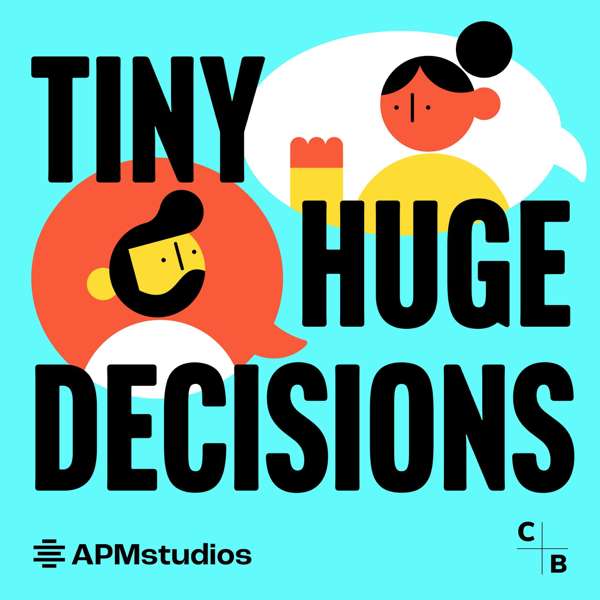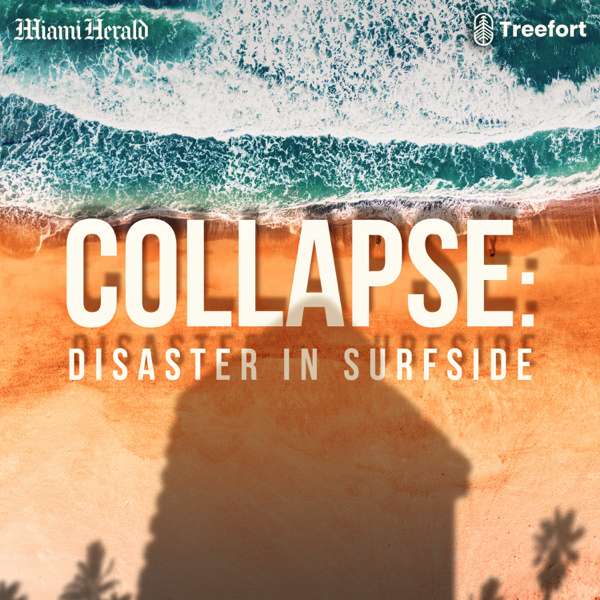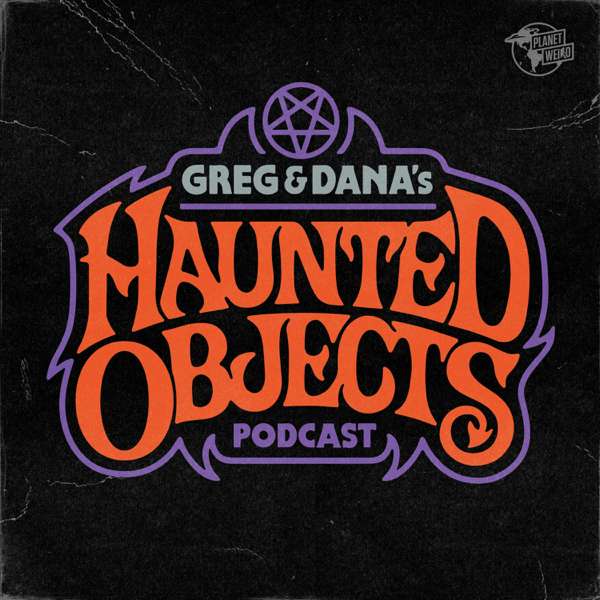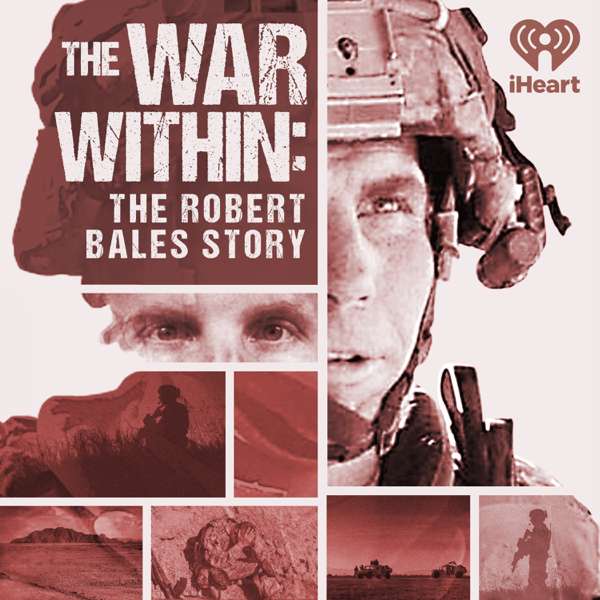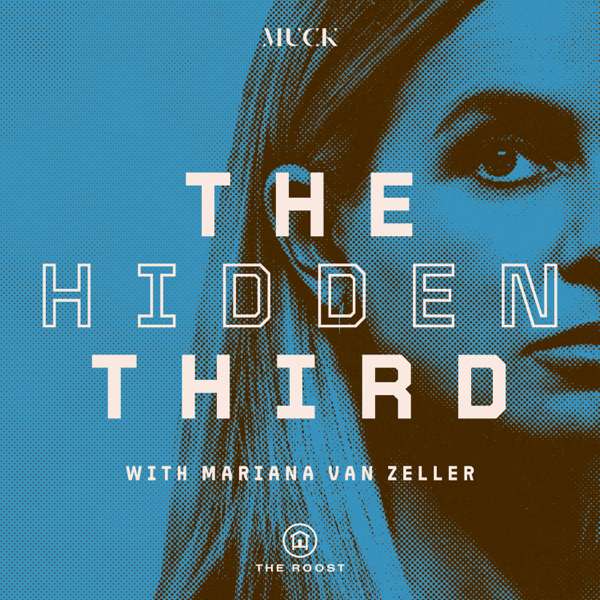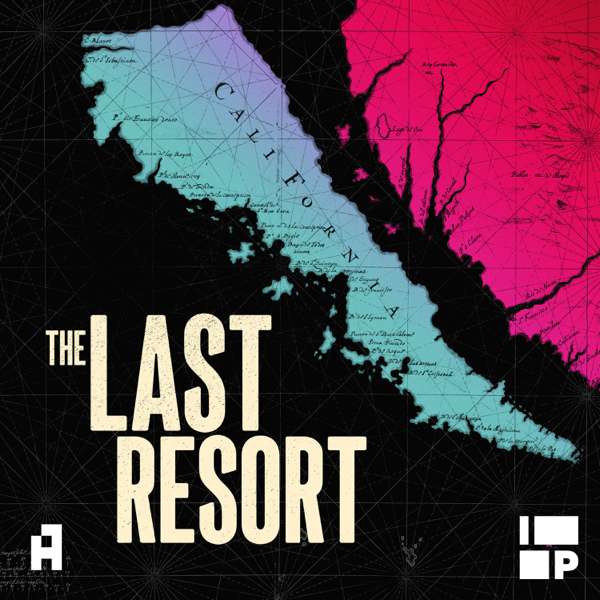This week on In Black America, producer and host John L. Hanson speaks with actor, film director/producer and writer Robert Townsend about his challenges and successes over three decades in the entertainment industry, including the groundbreaking film Hollywood Shuffle, the Making The Five Heartbeats documentary, and new television project American Soul.
Intro Music [00:00:08] The In Black America theme music, an instrumental by Kyle Turner.
Announcer [00:00:15] From the University of Texas at Austin. KUT Radio, this is In Black America.
Robert Townsend [00:00:23] Well, you know, here’s the thing. I just gravitate to what I want to create. And sometimes people will send me a script or there’s an idea that I have. So when I think in terms of the Five Heartbeats, for example, I wanted to do a movie about five guys, total different guys, and how they become a family making music. And so that’s how that came about. Meteor Man I wanted to, you know, be the first African-American superhero, and I wanted it to be funny and I wanted to make it for kids. So Holiday Hard, which is a film that I directed, I think, you know, it’s a theme, you know, of nontraditional family. But I think any time, you know, I create stuff, even the parenthood that I just really wanted to help raise a generation of kids because I know they’re going to be sitting in front of the TV. So how do I give them, you know, basic lessons on morals and values? And that’s why I created that show.
John L. Hanson Jr. [00:01:23] Robert Townsend, comedian, actor, film director, producer, writer and former cable network programing CEO. He has been referred to as the godfather of the independent film world with more than three decades in the entertainment industry. Many of us remember the memorable work he has produced. He is the genius behind Hollywood Shuffle, The Meteor Man and the Five Heartbeats. Townsend also created award winning programing for television. This include Partners in Crime for HBO, Townsend Television, for Fox Television and the WB network series The Parenthood. His most recent project for television is directing American Soul The Untold Story of Soul Train and the Man Behind Its Legacy, Don Cornelius. Townsend’s documentary, Making the Five Heartbeats was a nominee for outstanding documentary at the 50th NAACP Image Award. I’m John L. Hanson, Jr. and welcome to another edition of In Black America. On this week’s program, the legendary Robert Townsend. In Black America.
Robert Townsend [00:02:31] I would say it has changed. You know, I mean, there’s a lot more images of people of color. There’s a lot of new voices that have emerged. So, you know, when I started, it was just basically me and Spike. And then, you know, Kenan started to make, you know, movies. And then John Singleton appeared. So, you know, now there’s a whole new crop of filmmakers that are, you know, aggressive and taking chances. And so it is a different Hollywood now.
John L. Hanson Jr. [00:03:01] As a child growing up on Chicago’s West Side, Hollywood icon Robert Townsend has always been fascinated with the entertainment industry. Raised by a single mother with four siblings on welfare, he spent much of the afternoon time watching television. He began to practice acting out scenes and imitating famous characters. His first film break came as an extra in Cooley High. From there, he landed a role costarring opposite Denzel Washington in A Soldier’s Story, finding work for African-American actors hard to come by. He decided to step out on his own as an independent filmmaker. He wrote, directed, produced and starred in Hollywood Shuffle. The film was a satire depicting the trials and tribulations of African American actors in Tinseltown. The success of the movie made Hollywood take notice, and Thompson was on his way to bigger projects. Eddie Murphy was so impressed with Hollywood Shuffle, he asked him to direct Eddie Murphy Raw. Townsend has been the genius behind many of Hollywood’s favorite and best remembered hit series and movies. Recently, In Black America had an opportunity for the exclusive interview with Robert Townsend.
Robert Townsend [00:04:16] I grew up this man. It was rough. You know, I lived in Cape Town. Um, and it was, you know, gangs on every corner. And, you know, I had to I couldn’t play outside because my mother was afraid that I was going to get recruited by one of the gangs. And so, um, you know, it was a rough time, but it was through that that I learned about theater and television and movies because I was just a little kid.
John L. Hanson Jr. [00:04:42] What were some of the TV shows that you frequently watch while you were destined for the house?
Robert Townsend [00:04:49] Uh, uh, I watched everything, you know, and as a kid, I watched everything. I mean, so you, you can. Hitchcock. Alfred Hitchcock. I watched The Guns of Wilson. It, uh, I love Lucy. Um, you name a TV show…Lassie. I watched everything. You know, I even watch, uh, PBS. I watched opera, French movies. I was the strange little kid, but I loved it all.
John L. Hanson Jr. [00:05:13] So what was life like growing up in the house where you had three other siblings?
Robert Townsend [00:05:19] Yeah, I, um. I am the second oldest. Uh, there’s my sister. My sister Beverly is the oldest, And then my brother Steve is under me, and then my sister. And. And so, you know, we lived in a little small house, you know, apartment, and, uh, you know, it was my mother. My mother had remarried then and my stepfather, Roosevelt, And basically the bathroom was my room. And so in the bathroom is where I, I would, you know, go into my fantasy world creating my characters and the.
John L. Hanson Jr. [00:05:50] Good acoustics in there.
Robert Townsend [00:05:52] Exactly. So that’s kind of where it started for me doing, um, you know, doing impressions and characters and stuff when I was, when I was like nine, nine, ten.
John L. Hanson Jr. [00:06:02] What was it about that Shakespearean play when you were in high school that, that gave you the impetus that maybe this is something I want to do for a living?
Robert Townsend [00:06:12] Well, what it was was that it was really in grammar school. I was in fifth grade and there was a teacher, his name was James Reed, and he wanted kids in the hood to learn about Shakespeare. And so he had us read like three pages of, um, you know, a scene from Shakespeare. And I just remember it was really, really hard. And, you know, this is how I really started because, uh, you know, I was a kid in the hood, and so I wanted to get an A on the paper and, you know, just to read it. And, you know, it was, it looked so hard to me. So I went to the library and I stole all the Shakespeare records cause I’m a little, little kid. And I go, I’m going to listen to them and see if I can understand it better. And when I listen to them on our stereo, you know, in the house, uh, I kind of understood it. And so when we had to read, you know, a scene from Oedipus Rex in class. Mm, uh, I could really, you know, do it like the Royal Shakespeare Company. And so as I read the scene, the class went crazy, but the teacher was like, you have a gift. And that’s when it started for me.
John L. Hanson Jr. [00:07:21] When did you develop your standup comedy?
Robert Townsend [00:07:24] You know what? Uh, I always was a fan of, you know. Meetings that I saw on The Ed Sullivan Show. And because, you know, I like making people laugh. And I’ve always, you know, thought really silly and funny. I don’t know. I don’t know when the very first time there was a club in Chicago called Punch Canellos and Punch in Laws was in downtown Chicago. And, uh, I remember that was the first time I performed stand up. And I had a routine where I would, you know, turn around in a circle and I would do these different characters. And I called it, you know, something like I of Bill, you know, change the channel, and then I could do all these different voices. And that was my first routine.
John L. Hanson Jr. [00:08:07] What gave you the courage to move to New York?
Robert Townsend [00:08:11] Well, it wasn’t so much the courage. There was a teacher. I was going to school at Illinois State University in Normal Bloomington, and I was there and I was a freshman. And I was fascinated with theater in New York. And there was a teacher that was there from New York. And I would ask about, you know, New York. And I was like, how do the actors what is Broadway like? How do they act? And she said, Stop asking me about New York, because you don’t have what it takes to make it in New York. You don’t have what it takes to make it in this business. And she shut me down and I I’d call my mother because it was devastating to me. And I called my mother and I said, you know what? I am going to transfer to New York to a school in New York. I got to see if I’m going if I can make it, if I can do what’s in my heart. And, uh, I transferred there was a student exchange program, and I transferred to a college. I couldn’t get into New York, but I got to college 20 minutes from New York. William Paterson College in Paterson, New Jersey. And I transferred. And that’s how I got to New York because of that teacher.
John L. Hanson Jr. [00:09:19] And what did you major in?
Robert Townsend [00:09:22] Theater. I mean, mass communications and theater. So I did it all, you know, I was a theater minor and radio and TV communications was my major.
John L. Hanson Jr. [00:09:32] And how long did you stay in New York before you decided to move where you are now in Los Angeles?
Robert Townsend [00:09:37] Well, I lived in New York for about six, seven years. And, uh, I was, uh, doing stand up. I had met a young comedian online, you know, uh, uh, I a lining up to get, you know, to an audition for the Improv. And that was Keenen Ivory Wayans. Mm hmm. And so Keenan and I, you know, were the only brothers on on standing outside waiting to audition, and we became like, you know, really good friends. And Keenan moved to L.A. first. Keenan moved to L.A. first, and then after Keenan moved to L.A., then that’s when I, you know, uh, Keenan said, Hey, Rob, I’ll, I, I’ll fly back to, um, I’ll fly back to New York and we can drive your stuff across country. You got to come to L.A. And that’s how I got to L.A.. Kind of drove me across the country.
John L. Hanson Jr. [00:10:31] Did you ever run across Bernie Mac while you were in Chicago? Did you all the same club?
Robert Townsend [00:10:36] No. No, I never because I had left by that point. And I was just doing movies and television. And, uh, when I met Bernie, I was directing BAPS and, uh, um, there was a little small part in BAPS, and everybody was like this. This guy to Chicago, you you need to meet him. Bernie Mac. And then, uh, Bernie did the, you know, the cameo in, uh, in BAPS for me, you know, But I didn’t know him, you know? I just knew. He’s a funny man. Oh, my God. But I would see him at clubs, and he goes, Uh, you know, I’m from Chicago. Boy, you know, I’m from Chicago. You know, we we Chicago boys, we got stick together, you know, and I was just like, man, But he was. He was a beautiful brother. Beautiful brother.
[00:11:20] If you’re just joining us, I’m John L. Hanson Jr. and you’re listening to In Black America from Coogee radio. And we’re speaking with Robert Townsend, actor, comedian, film director, former CEO of network writer and one of my favorite TV programs that I watched constantly now the Parenthood. Mr. Townsend, tell us about that cameo role in Cooley High.
Robert Townsend [00:11:45] You know, when I was a young actor in Chicago, I was doing theater at an X Bag. It was called X Bag Experimental Black Actors Guild. And, um, the director, uh, my first director there, Payment RAIMI He was also working on a movie, this new movie coming to Chicago, doing extras and helping out behind the scenes. It was called Cooley High and so the director, Michael Schultz, came to see me in the play at X Bag. And then he goes, Oh, you’re going to have an audition. And so I went in and auditioned. I had like a little small part, but I had never done a movie before. And, uh, that movie changed my life because, uh. I had two lines in the movie, but then the movie became a classic. When I saw it, I said, I want to make movies like that. That’s those are the kind of movies I want to make and that kind of change. I remember watching it, I think it was downtown at the Woods Theater was the premiere or something, and I just remember seeing that movie and it just changed me because back then we had, you know, Black exploitation movies, right? You know, but they were just my hero. So I can’t even say exploitation. They were it was the first time we had, you know, Black men and women kicking butt and taking names and falling in love and getting a girl. And, you know, so they were my heroes. So I don’t when people say Black exploitation, you know, but that was a certain that was a certain genre. But then Cooley High came out and it was like my childhood. It was like me and my boys hanging out. So that that was how it began. But that audition with Michael Schultz.
John L. Hanson Jr. [00:13:25] What was it like that first day on set? You know, you dream about being in a movie, but actually showing up and knowing I’m going to be in a movie no matter how small the part is.
Robert Townsend [00:13:38] Well, you know, you’re in all you know, I mean, I was just like, oh, my God. And I had, you know, seen Lawrence Hill and Jacobs and I knew Glynn Turman and their work. And so I was just like, Oh, my God, I’m getting to work with New York, you know, you know, the New York the A-list of New York, you know, Black actors. So I was just in heaven. And then, you know, I didn’t know Michael Schultz, you know, but the way he talked to actors, he just made everybody feel really comfortable.
John L. Hanson Jr. [00:14:11] Is your homeboy.
Robert Townsend [00:14:12] Yeah. Yeah. He was just really cool. And it was just, you know, and we we just had the best time. And I just remember, like, wow, you know, this is what movies are like.
John L. Hanson Jr. [00:14:23] Another memorable role playing Corporal Ellis in A Soldier’s Story.
Robert Townsend [00:14:27] Oh, man, that was a ball, because that was the first time I work with Denzel.
John L. Hanson Jr. [00:14:33] Did you know you’re going to blow up like he has?
Robert Townsend [00:14:36] Oh, my God. I mean, he’s always been really serious about his craft, so. No, I was. I’m not surprised. I’m not surprised at all. I mean, you know, back then, you know, because he had done the the the show, the theater production of A Soldier’s Play. And I was in L.A., and I remember loving the show. But then, you know, when they said, hey, they’re going to make a movie, you know, they always go after the biggest names in Hollywood. And so Norman Jewison, who directed it, he was kind of like, you know what? I’m going to go with new faces. I’m not going to go with the traditional route. And then Reuben Cannon was casting it, and I went in for the part of Corporal Ellis, and I got it. And it was me, Denzel, David Alan Grier, Howard Rollins, Adolph Caesar. And we just had a ball.
John L. Hanson Jr. [00:15:23] Now, Caesar is not with any longer, but the rest of them are. Do you still get a chance to come across each other from time to time?
Robert Townsend [00:15:30] Well, you know, Howard Rollins passed away as well. Yes. You know, so I mean, but everybody’s always you know, everybody’s busy. So we see each other every now and then, like at an awards show or something. But, you know, people are always traveling. And so if you if you’re in the same city and you run into each other, we do still see each other.
John L. Hanson Jr. [00:15:49] Why was it important for you to make Hollywood Shuffle?
Robert Townsend [00:15:53] Well, the Hollywood shuffle came at a time when the images of people of color were really negative. Mm hmm. There were more. You know, they had, you know, the stereotypes in full effect. You know, you had pimps, you had drug dealers, you had gangsters, you know. So it was just. That’s all you saw Black men. Mhm. So I was either I was going to die because that’s the box that at that time that Hollywood was putting all Black you know, actors in and uh, you know, rather than complain I decided that I was going to make a movie. You know what? Keenan and I decided that we were going to make a movie about our journey as young actors in Hollywood, and that’s kind of how it all started. We shot the movie in 12 days. To finish the film, I, I use my credit cards, so it was just hustling on the highest level. And then the film became a huge success.
John L. Hanson Jr. [00:16:52] I was going to ask you about that. Did you ever think it would be an iconic classic that I watch every time it comes on television? Uh.
Robert Townsend [00:17:00] Well, here’s the thing that I would say is that when when you create something that you’re just having fun and it’s not about like, what people think. Keenan and I were just having a good time and being silly and making each other laugh. We thought it was funny. And then eventually the world said, Oh, this is really funny, and it just came together. But but we were just having a good time. Did we think it was good? Yeah, we thought it was funny. You know, did we think it was going to take off the way it did? Not really. We just knew we had done something different and special.
John L. Hanson Jr. [00:17:35] That same year, you you directed Eddie Murphy’s Raw. How did you and Mr. Murphy get together?
Robert Townsend [00:17:41] Well, Eddie was on the comedy circuit, you know, in New York, and we had all seen each other. And then after we did the Hollywood Shuffle, Eddie called and wanted to cause he had heard about the movie. And he said, Oh, brother, everybody talk my Hollywood shuffle, man, you know? And, you know, we weren’t in that many theaters, so you couldn’t really see it. And it wasn’t like DVDs or anything, you know. So then I said, Man, I’ll set up a screening for you. But I had also written a scene in there where we talk about being an Eddie Murphy type. And so then, you know, and then Keenan was like, because Keenan didn’t want to put the scene in there. And I was like, Keenan, You know, it’s funny, man. They want us to be like Eddie Murphy. And he’s like, Robin, put that in there. And I put it in there. And then Eddie called an hour to see the movie. So we were like, Oh, my God, I made a mistake. And so we have the screening for Eddie, and he loves the movie and he loves the scene. And then as he’s walking out of the screening, he says, Hey, I’m going to do this movie in a stand up concert film. It’s going to be called Raw. You want to direct it. And I said, Yeah. And he goes, It’s yours then. And that’s how I got raw.
John L. Hanson Jr. [00:18:54] When you sit down to do a project, what are some of the elements that that you want to include? Because it seems that from my vantage point thus far, the movies that you’ve made, even the television programs, are somewhat family friendly.
Robert Townsend [00:19:10] Well, you know, here’s the thing. I, I just gravitate to what I want to create. And and sometimes people will send me a script or there’s an idea that I have. So when I think in terms of the Five Heartbeats, for example, I wanted to do a movie about five guys, total different guys, and how they become a family, making, making music. And so that’s how that came about. Meteor Man I wanted to, you know, be the first African-American superhero, and I wanted it to be funny and I wanted to make it for kids. So, um, Holiday Hard, which is a film that I directed, I think, you know, uh, it’s a theme, you know, uh, of of nontraditional family. But I think any time, you know, I create stuff, even the parenthood that I just really wanted to help raise a generation of kids because I know they’re going to be sitting in front of the TV. So how do I give them, you know, basic lessons on morals and values? And that’s why I created that show.
John L. Hanson Jr. [00:20:16] Tell us about the Robert Townsend Foundation.
Robert Townsend [00:20:18] My foundation, I have always been committed to filmmakers and helping artists of color. And so over the years, I’ve done masterclasses around the country and I’ve mentored a lot of different filmmakers. And so it’s just my way of giving back.
John L. Hanson Jr. [00:20:34] I was going to ask you, you mentioned it in your other answer. Have you put your finger on why the Five Heartbeats every time it comes on? It’s a major viewing event and it had lasted, you know, 20 plus years.
Robert Townsend [00:20:47] You know, I think the Five Heartbeats resonates with people because the different themes, you know, I think, one, it’s about forgiveness. At the end of the day. Uh, and I, you know, um, you have five guys, you have a falling out, you have a roller coaster ride of rags to riches and all of that. But at the end of the day, they are still family and they forgive each other and they work it out. And I think everybody in life goes through ups and downs, and it’s like, how do you handle it? And I think at the end of the Five Heartbeats, and I don’t know if you’ve seen the documentary Making the Five Heartbeats, which is, you know, the journey behind the film, but it’s kind of like that theme of forgiveness is the overriding theme.
John L. Hanson Jr. [00:21:37] Can you tell us about the gentleman, Jack, Will the Real Project? Are you working with that still?
Robert Townsend [00:21:44] Yes, I am. As a matter of fact, on July 10th at the, uh, Wilton Theater in Los Angeles, you know, a gentleman. A gentleman. Jack has been doing something really interesting. They have been doing all of these screenings of short films as well as discussions with filmmakers. So on July 10th, uh, at the Wiltern, they’re going to show a few films from up and coming filmmakers, and then they’re going to have a discussion with me and I’ll be talking about how I make my movies, why I picked a certain scripts, how I work and just, you know, my overall vision as an artist.
John L. Hanson Jr. [00:22:26] Tell us about Carmen.
Robert Townsend [00:22:27] Carmen, the hip hop opera. Yeah, it was the first hip hop opera. It was Beyonce’s first time acting. So, you know, I was her first director. You have the most definite. You have bow wow. You have Jermaine Dupri. You have Mickey Phifer. So he had an all star cast. And, uh, it was a hip hop opera. And it, uh, it was based on, uh, the opera. Carmen. But it had never, you know, no one had ever seen, uh, a movie where it was rapping all the way through. And, uh, it became one of the highest rated movies for MTV. That’s who produced it. But I had the best time working on it, and it just came out. It’s on Netflix this month, right? Um, but I. I was so proud to work on it on that film.
John L. Hanson Jr. [00:23:17] I understand. Tell us about the TI unit.
Robert Townsend [00:23:20] Huh? Uh, uh, the TI unit. Uh, that’s my daughters and my son. You know, behind the scenes, they’re always working with me. That’s my daughter, Skye. My daughter Sierra. My daughter, Alexia. Uh, my son, Isaiah. And so, you know, they started when they were really young, working with me as babies. And so now, you know, when I work on a project, like, I just shot a presentation for a new, um, a new project. And my kids were, you know, involved in the casting and working with me to, to identify new talent, new artists. So the T union, those are my babies.
John L. Hanson Jr. [00:23:58] That they just naturally gravitate to the industry or did you try to coach them along?
Robert Townsend [00:24:04] You know what? They naturally gravitate, Gravitated Well, see, growing up in Hollywood, you know, they, they you know, they’ve walked many red carpets with me, been to premieres and all that stuff. And then at a certain point they go, I want them talking to me, not just talking to you. Yeah. So? So they’re always vying for that attention. So I get it.
John L. Hanson Jr. [00:24:27] In the last four decades, obviously, Hollywood was a different animal when you first came there. Has it changed that much?
Robert Townsend [00:24:35] I would say it has changed. You know, I mean, there’s a lot more images of people of color and there’s a lot of new voices that have emerged. So, you know, when I started, it was just basically me and Spike. And then, you know, Kenan started to make, you know, movies. And then John Singleton appeared. So, you know, now there’s a whole new crop of filmmakers that are, you know, aggressive and taking chances. And so it is a different Hollywood now.
John L. Hanson Jr. [00:25:08] I got two more question. One question is, are we ever going to see a dramatic television program? The last one I can remember is Larry was sindrome with lewd gossip. Most of the African-Americans on television, they’re probably in a comedy or situation. Comedy situation.
Robert Townsend [00:25:24] Well, I mean, when you look at, uh, how to get away with murder or Scandal, I mean, those are.
John L. Hanson Jr. [00:25:29] Right.
Robert Townsend [00:25:30] Characters in a dramatic situation. When you look at this guy, that’s a dramatic power. So there are dramas, you know what I mean? So I, I just know from from my side, you know, the the new ideas that I have in my head, they’re all so different. And so I I’m always going to try something new. But I think right now there’s a there’s a lot more images than than we’ve had before.
John L. Hanson Jr. [00:25:54] Did you ever get a chance to keep the houndstooth hat you had on The Five Heartbeats?
Robert Townsend [00:25:58] Say that again.
John L. Hanson Jr. [00:25:59] That Hound two hat that you wore in the Five Heartbeats, did you keep that or you went back to wardrobe?
Robert Townsend [00:26:05] I kept it, but what happened was I had a building that was my studio in Hollywood. And when the earthquake hit, I lost everything in the earthquake. And so, yes, all my props and all my stuff was in the in the, uh, in my building, in my studio. And, uh, it was like a 16,000 square foot building. But when the aftershocks came, you know, you know, people were like, we go in there and get it. I was like, No, no, I want to body die trying to get my hat. No, no. So, so a lot of my stuff got, you know, lost in the earthquake.
John L. Hanson Jr. [00:26:39] What do you see yourself five, ten years from now? Mr. Townsend?
Robert Townsend [00:26:45] You know what? 5 to 10 years from now, I just want to continue to create. You know, I, I love, you know, making, you know, movies and television shows. Um, next month I go down to, you know, Atlanta. I’m shooting Black Lightning, so I’ve been directing that and acting on that. And then, uh, American Soul four Betty, uh, directed a few episodes of that, so I may be going to that, uh, been working on a one man show about my life, so it’s just a lot. I’m just being an artist. So for the next years, I just want to continue to create and just do what I do now.
John L. Hanson Jr. [00:27:21] American Soul was the story of Don Cornelius and Soul Train.
Robert Townsend [00:27:25] Yes, sir. Yes, sir. So we we did the. First season, I directed two episodes and people really seem to love the show. And so now there’s a new season. And so, you know, they’re putting the schedule together now, and so I’ll see if I’m going to come back for that.
John L. Hanson Jr. [00:27:41] Robert Townsend, comedian, actor, film director, producer, writer and former cable network programing CEO. If you have questions, cameras or suggestions, ask the Future In Black America programs. Email us at In Black America Editor Kuchi Date Ohaji. Also, let us know what radio station you heard is over. Remember to like us on Facebook and follow us on Twitter. The views and opinions expressed on his program are not necessarily those of the station or of the University of Texas at Austin. You can hear previous programs online at kut.org. Until we have the opportunity again for technical producer David Alvarez. I’m John L. Hanson Jr. Thank you for joining us today. Please join us again next week.
Announcer [00:28:31] CD copies of this program are available and may be purchased by writing to In Black America CDs, KUT Radio, 300 West Dean Keeton St, Austin, Texas 78712. This has been a production of KUT Radio.

 Our TOPPODCAST Picks
Our TOPPODCAST Picks  Stay Connected
Stay Connected


